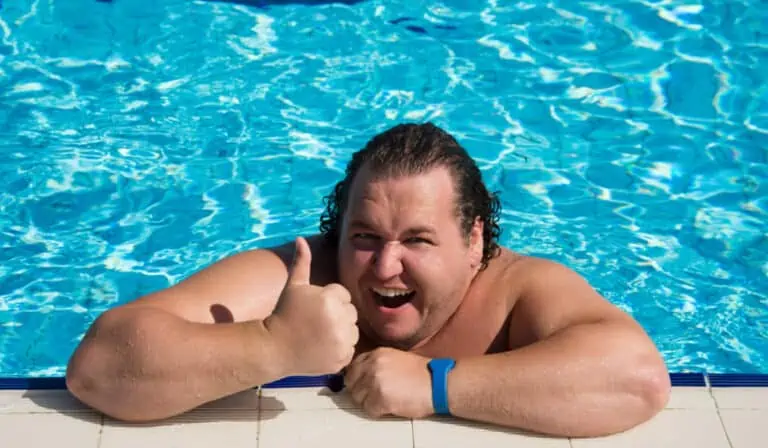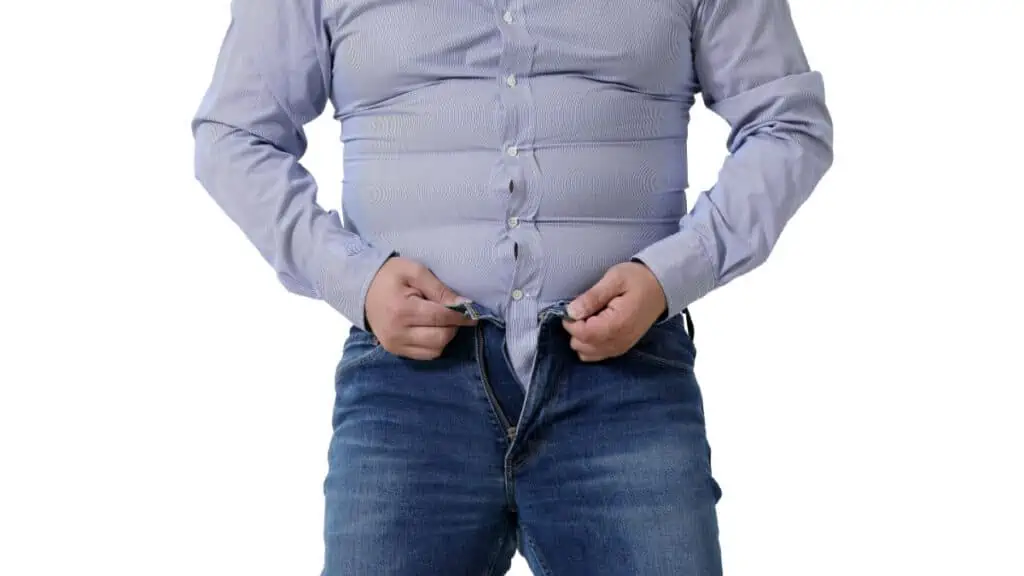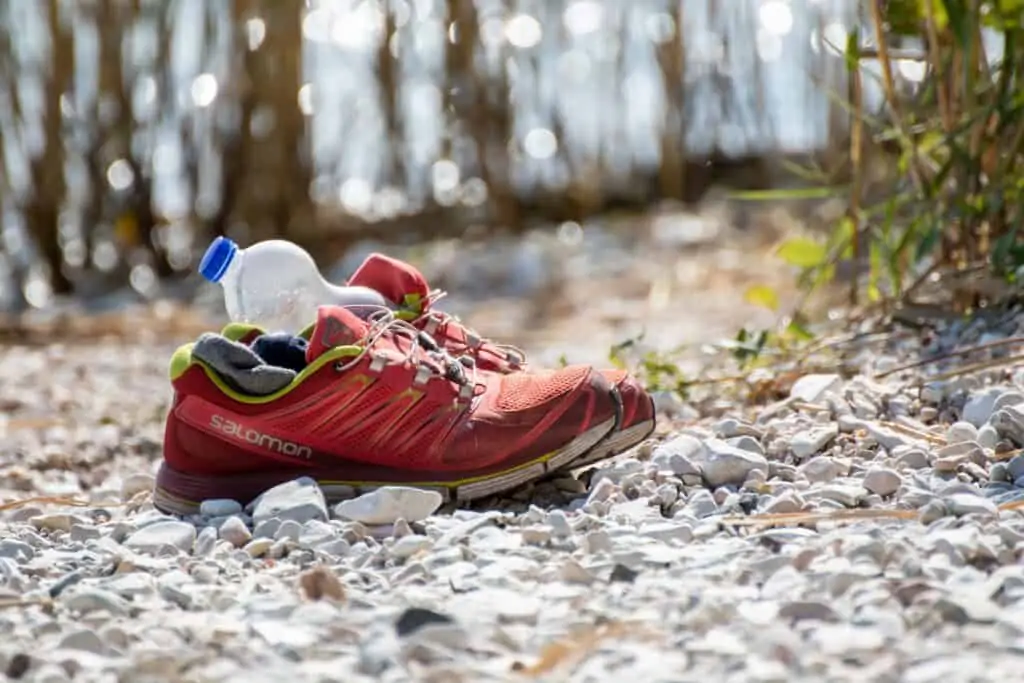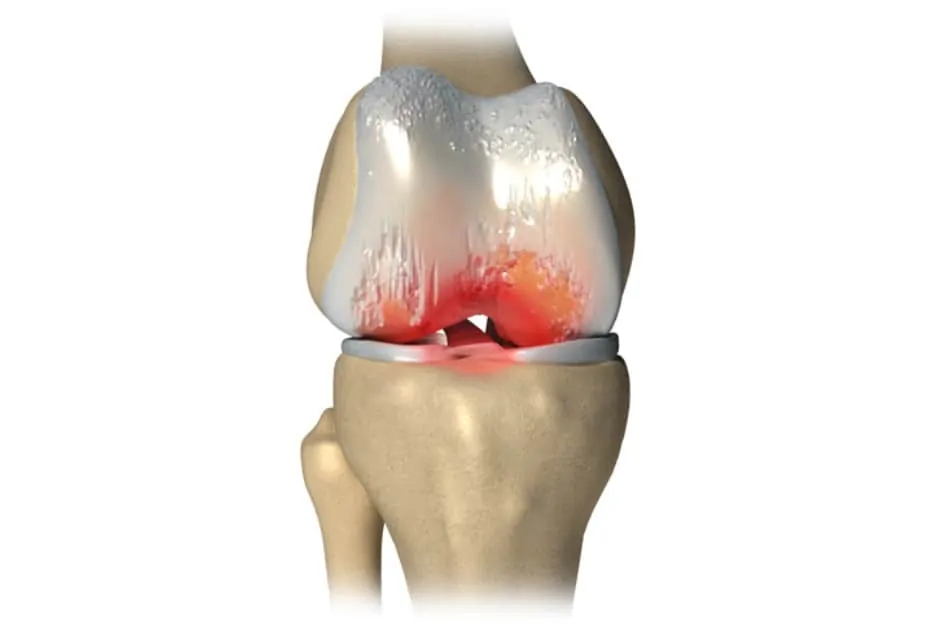When I was a kid, I couldn’t float to save my life (or swim for that matter). I vividly remember going to the pool every week when I was in fourth grade for swim lessons. We were supposed to dive into the pool, swim to the other side, and then float until the teacher checked us off.
When it was my turn, I leaped off the side of the pool, catastrophically belly-flopped, doggy paddled halfway across the pool, and sank. The girls in my class were so impressed with me.
I was finally able to get over that traumatic experience (I guess it was more embarrassing than traumatic) when my wife and I decided to get an above-ground pool this past year. The first time I hopped into it (I’m a big guy so I use the term “hopped” very loosely) I noticed that I was able to float effortlessly on my back for the first time in my life!
When I tried to give my kids some pointers on how to float I was told, “Dad…you just float because you’re fat.”
Which lead me down a rabbit hole of research to try and find out if fat people really do float better than skinny people and, if so, why? One of the main reasons I decided to find out was to impress my kids but, since that rarely seems to happen, I figured I’d share the information here with you as well!
So Do Fat People Float?
In general, fat people float better than lean people. However, it is a person’s overall composition, not necessarily their size, that dictates their buoyancy and how well they will float in water. The higher a person’s body fat percentage is, the easier it will be for them to float.
In general, fat people, women, and elderly people tend to float the best while people with high muscle mass tend to sink. So yes, I float and bodybuilders sink.
How Fat Do You Have To Be To Float?
The reality is, most people float. It’s simply a matter of knowing how to relax and learning the proper techniques to keep your face above the water while you float.
However, a higher body fat percentage will typically make it easier. Your distribution of body fat will also dictate how your body sits in the water as you float.
If you are an average or overweight person and jumped into a body of water totally relaxed, you would float. However, because of the drag created by your arms and legs (and the fact that you don’t bend backward as well as forward), you would float face down.
The reason that some people can float so well, then, is typically because they have learned how.
However, the question of who floats best is not always so simple. In fact, there are a couple of different principles that will affect how well a fat person floats (or a skinny person for that matter).
Specific Gravity and How it Affects How Fat People Float
The specific gravity of a person’s body is the most influential factor when determining whether or not they will float.
Specific gravity (also known as relative density) is simply the measure of the weight of one object (or person) compared to the weight of another object (or person) of the exact same size.
So, for example, if you take a lead ball it will have a much higher relative density than a ball the same size made out of plastic. However, we don’t use balls of lead or plastic when comparing relative densities across objects.
Water is the most commonly used substance for use in comparison. Water typically weighs 1kg per liter and has been assigned a specific gravity of 1.0 What determines how well a person floats, then, is how they compare to water in relative density. If your specific gravity is greater than one? You’ll sink. Less than one? You’ll float.
Now, your body composition (easily measured by your lean body mass and body fat percentage) will be the most effective gauge of how well you will float.
The specific gravity of the average human male is .98 meaning that floating is possible for the average male. If you add in a significant amount of fat, that number is pushed lower making floating a more passive experience.
Muscle and bone have a specific gravity of slightly over 1.0 while fat has a specific gravity of slightly under 1.0 This is pretty easy to see in the kitchen. If you pour oil (fat) into water, it will float to the top. If you drop a chunk of meat in water, it will sink.
The reason fat people float better is that they typically have enough fat to raise their overall relative density equal to or less than 1.0
Another way of thinking about this is: if you had a bag of water your exact size and shape, would it weigh more or less than you? Fat people float better than skinny people because they tend to weigh less (or closer to less) than their water-twin.
Displacement and Buoyancy
A very closely related (but slightly different) subject that determines how well people float is the question of displacement.
Displacement is simply the amount of something (in this case, water) that you displace (or take the place of). When you jump into a body of water, you displace an amount of water that is equal to the mass of your body under the water.
When you are immersed in water, you experience a buoyant force equal to the weight of the water you have displaced. So if you weigh 300 pounds and displace 300 pounds of water, you will have a gravitation force of 300 pounds pulling you down while 300 pounds of buoyant force will push you up: meaning you’ll have achieved equilibrium and will float!
Floating in Salt Water vs. Fresh Water
When it comes to using water as a basis for relative density, pure water is the only truly useful type. Adding anything to water (salt in this case) will make it weigh more than freshwater of the same volume.
Because of this, salty water has a higher specific density than freshwater and both skinny and fat people will float better in it.
However, this is only true to the extent of the salt the body of water contains. The oceans vary from 1.022 to 1.035 in specific gravity which, as it sounds, really isn’t that different from freshwater.
If you really want to float well, briney water is your best option as it contains the most salt (typically 50+ ppt). The best known of briney waters are probably the Dead Sea in Israel/Jordan and The Great Salt Lake in Utah. The Dead Sea has a specific gravity of 1.3 which is why people are always astounded at how well they float when visiting there!
Can Fat People Swim Better Because They Can Float?
Being able to float does not necessarily have an effect on how well you can swim. Since each person’s body composition, fat distribution, and shape are different, your swimming ability is affected to a far greater extent by your technique rather than your size.
With that being said, there are some pretty consistent differences between fat and lean swimmers. In general, fat people tend to float better than skinny people which may be advantageous if they will be in the water for a long time. However, lean/skinny people generally have a shape that is more conducive to moving easily through the water and so they are typically faster swimmers.
Conclusion
Overall, the differences between overweight and lean people are typically so small that how well you can float is much more likely to be determined by how good you are at floating and how much air you have in your lungs at the time.








